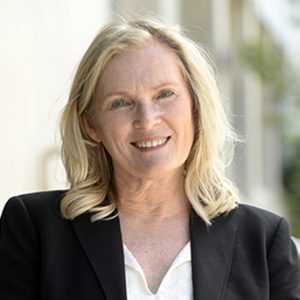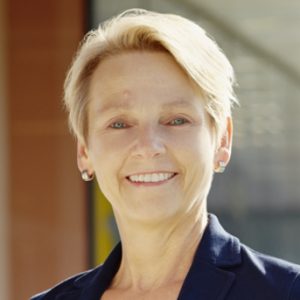
York University's Academic Innovation Fund celebrates an important anniversary this year. The program has promoted exceptional innovation in teaching, learning and the student experience, and it continues to grow and thrive.
By Elaine Smith, special contributor

Bring on the balloons, the streamers and the cake for York University’s Academic Innovation Fund (AIF), which celebrates its 10th anniversary this year. The AIF, overseen by the Office of the Associate Vice-President of Teaching and Learning, financially supports projects that advance York University's priorities in terms of teaching, learning and the student experience, allowing faculty to experiment and innovate in new and creative ways, both in teaching and in pedagogy. Its creation was spearheaded by a team that included President and Vice-Chancellor Rhonda L. Lenton, who was vice-provost academic at the time.
“I am delighted to be celebrating the 10th anniversary of the Academic Innovation Fund,” said Lenton. “By supporting groundbreaking approaches to teaching and learning, including technology-enhanced learning, and facilitating increased access to fundamental student success programs and international perspectives that extend around the world, the AIF continues to provide our faculty and course directors with the resources they need to push pedagogical boundaries and enhance the student learning experience, solidifying York’s reputation as an innovative, progressive and forward-thinking institution dedicated to teaching excellence.”

The AIF was also a means of elevating and celebrating teaching and learning in the eyes of the York community, said Professor Will Gage, associate vice-president teaching and learning.
“It showed how committed the University is to teaching and learning and provided leadership to the higher education world around teaching and learning,” Gage said. “When AIF began, our early investments paid dividends in a number of different ways, including helping faculty members advance their priorities, putting a focus on technology-enhanced learning, and creating champions of teaching and learning among the faculty, who served as role models for their colleagues.”
In fact, a report by York’s Institute for Social Research validated the importance of AIF, noting how impactful it was in furthering innovation in pedagogy and curriculum.
Provost and Vice-President Academic Lisa Philipps has seen the AIF continue to flourish and believes it sends "an important signal to faculty that at York we have an aspirational culture around teaching and we value the effort and creativity of our faculty in developing new, high-quality learning experiences for our students."

A number of projects that date back to the early days of the AIF are now fixtures at the University: the Cross-Campus Capstone Classroom (C4); globally networked learning (GNL); YU Start, the transition program for incoming students; SPARK, the Student Papers and Academic Research Kit; and an e-learning program from the School of the Arts, Media, Performance and Design (AMPD) that connects students to the community. The originators of these programs are enthusiastic about the effect that the fund has had in making these projects possible.

“The funding makes a huge difference,” said Franz Newland, an associate professor at the Lassonde School of Engineering and one of the creators of C4. “It really enables us, because it pays for things that make innovation possible. Innovation around teaching and learning requires a community of engaged, interested people and AIF is a mechanism to bring them together.”
Danielle Robinson, co-creator of C4 and an associate professor at AMPD, said, “There is no way that C4 could have been launched without the AIF. It gave the program legitimacy and a vote of confidence that amplified its impact across the community, not to mention the financial resources required. Students have directly benefited, because C4 is designed as a personal and professional journey of self-discovery for them.”
Globally networked learning "began as a provost-driven initiative in 2015 with a three-year AIF grant that allowed the GNL initial team to work closely with students, faculty and senior administration at both York campuses to inform and train on best GNL practices around the world," said Dominique Scheffel-Dunand, an associate professor in the Department of French Studies who helped create York’s program.
"York GNL has grown so much that in 2020-2021 alone, more than 600 students – 312 from York and 293 from international partner institutions – have had the opportunity to learn, share perspectives on challenging world-related questions," added Scheffel-Dunand, who has also taught at the Glendon Campus.
Lara Ubaldi, a member of the team that created YU Start, is appreciative of AIF too. “What a thrill to have an idea and have the University recognize it with funding to help get it started,” said Ubaldi, now director of student advising and academic services. “It makes you feel invested; you can do something to make a change.”
The YU Start program has become an award-winning success.

SPARK also grew out of an early AIF grant. "This was our first real pan-University project," said Sarah Coysh, digital engagement librarian. "It involved the library, the Writing Department, Learning Skills Services and other groups across the University that supported students. It was an opportunity for us to work together and look at best practices.
"We were one of the first to license such an effort through a Creative Commons licence, something that the AIF afforded us the opportunity to do. It has now been adapted by universities nationally and internationally as a result. We also know that it’s widely used; I hear from faculty if it’s not up to date," said Coysh.
In addition, SPARK has been translated into French at the Glendon Campus, thanks to a Heritage Canada grant.

At AMPD, faculty members David Gelb, Michael Longford and Judith Schwarz were early adopters of online learning for the arts and pioneers in offering blended studio courses. Their initial grant allowed them to work with a team to build the infrastructure to support online learning across the faculty; develop six large introductory courses, a combination of blended and online; develop best practices for online pedagogies; and nurture a community of practice. They have received subsequent AIF grants to augment these opportunities and establish excellence in media production.
“When the pandemic struck and we had to move fully online, AMPD was prepared to step up to the challenge, offering a full range of support to faculty during that time,” said Longford. “We’re quite proud of that.”
In fact, said Gage, all of the AIF advances "emerged as essential when COVID shut the world down. AIF established a foundation that helped us respond as an institution."
Karthiga Gowrishanger, program director, teaching and learning strategic initiatives for the Office of the Associate Vice-President of Teaching and Learning, agrees: “AIF innovation helped prepare us to be creative, agile and resilient.”
At York, AIF has become one of the proverbial gifts that keeps on giving.
